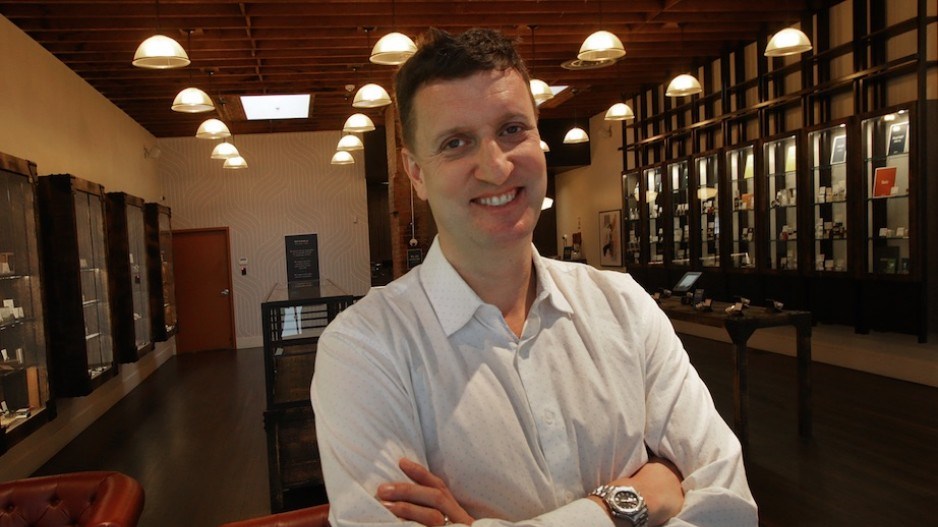Canada’s move to legalize recreational cannabis prompted many alcohol retailers to add cannabis to their product lineup, as though it were a natural extension of their businesses.
Executives reasoned they were used to adhering to strict government regulations – but the similarities between the two retail niches largely end there.
“There are some pretty good lessons that we learned,” said Nova Cannabis president Marcie Kiziak. “We thought we knew what we were walking into, but we didn’t.”
Nova Cannabis is part of Alcanna Inc. (TSX:CLIQ), a venture that has sold alcohol for decades and until May 2018 was known as Liquor Stores N.A. Ltd. The lion’s share of its revenue comes from selling alcohol. As of last September it had 260 liquor stores, including 33 in B.C.
It had nine cannabis stores last September, and that number has since jumped to 31, Kiziak told Business in Vancouver.
The biggest difference between selling the two controlled substances is that selling cannabis requires more staff time.
Liquor store customers tend to walk in, beeline to the domestic beer section or a shelf with spirits or wine, grab the desired products and head to the till to make a purchase.
Cannabis buyers are different. They spend a lot of time seeking information from sales staff about different cannabis strains, Kiziak said.
Customers are not legally allowed to touch products in the store, much less grab them and head to a till.
Kiziak and JAK Group principal Mike McKee agree on many of the differences between selling alcohol and selling cannabis.
Cannabis stores tend to be smaller than liquor stores, with fewer purchases and higher average transaction values. There can be fewer employees at cannabis stores but a higher staff allotment per square foot.
Recruitment was initially challenging at his Muse Cannabis stores, McKee said, because each employee had to be government approved – a process that meant paying the B.C. government a $100 fee to get what the government calls a “security verification.” That includes a criminal record check and can take months to receive.
Employees at his company’s 14 JAK’S Beer Wine Spirits-branded liquor stores need to pass a four-hour Serving It Right course, which costs $35.
Muse covered those fees for initial employees at its 3039 Granville Street store. In recent months, McKee has noticed that applicants for jobs at that store, as well as potential future locations in New Westminster and North Vancouver, often already have their security verification, and that job applicants tend to be more committed than those who apply to work at his company’s liquor stores.
“It’s tougher hiring for liquor [store staff] than it is for cannabis [store staff] at the moment,” he said.
Nova’s experience was to go on an early hiring spree because it intended to open 37 stores in Alberta in rapid succession. A government moratorium on licensing the stores forced the company to initially open just five stores, with 12 others in the wings.
It hired and trained staff only to lay off many people because stores couldn’t open. The upshot was that the company could keep the best employees and transfer them to manage newly opened stores, Kiziak explained.
“We built ourselves a workforce of trainers, which is a fantastic thing to do because it is much cheaper than having to hire trainers,” she said.
Nova did not need to hire externally for a store manager until its 24th store, Kiziak said.
Carefully training workers is vital when retailing alcohol or cannabis, although it is arguably more important in the cannabis space because products are more tightly regulated.
Each employee at Muse has a personal key fob to unlock doors and cabinets, McKee explained.
“Products have to remain locked up all the time even in the staff-only area, so there are things like that that are a little bit different than with alcohol, but otherwise we have a similar operations manual,” he said.
Donnelly Group vice-president of brand Harrison Stoker said his company similarly branched into retailing cannabis under the Hobo Cannabis brand from operating pubs with alcohol off-sales because its executives were familiar with running a government-regulated business.
What they did not expect was that it would take so long for government to approve retail locations.
Hobo just opened its fourth Vancouver store on Robson Street. Other local stores are on Main Street and in the Marpole and Kitsilano neighbourhoods.
Unlike in the liquor trade, those cannabis stores compete with unlicensed black-market rivals.
“That’s probably our No. 1 challenge here in Vancouver specifically,” Stoker said. •




